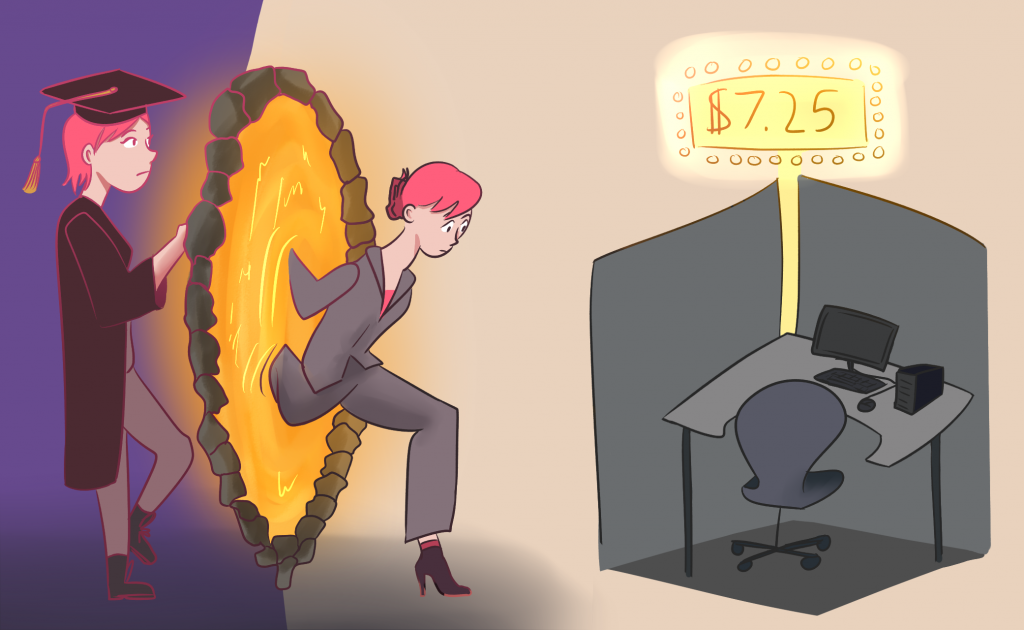What’s the magical entryway into entry level jobs?
Finding the real starting point for your career
by Helet Van Staden

Anyone in the artistic field starting their first job search after they graduate college may soon find that they are unqualified for a position in their field of study. Your expectation of finding a job based on your college qualifications alone might warrant a very condescending, “Everyone knows you can’t just start working with no job experience.”
So how do you obtain entry level experience so that you are qualified for your entry level job? There are various ways to garner experience while you are studying full-time for your degree. Completing internships, building your portfolio and working for exposure are some ways that will give you that competitive edge after you graduate.
An internship may not be a real job, but it can benefit the intern by providing them with real world experience in the field of their choice and potentially college credit as well. You can find many internships either through your career advisor, the SCAD Job Portal or through sites such as internships.com. Be sure to double check that they are respectable internships and not just people looking for free labor.
Another way to earn that golden ticket to entry level work is through building your portfolio. This involves curating your best creations from college and perfecting your style and technique in your spare time. If you are passionate and dedicated to the field you have chosen, devoting time and effort to improving and becoming the best that you can be should be your ultimate goal. Vague as it might seem, building your brand and gaining an online following through sites such as Instagram, PortfolioBox, and Adobe Portfolio will help you gain the much coveted pseudo-currency, namely exposure.
Unfortunately for a lot of freelance artists, many clients consider exposure an adequate form of compensation for their product or service, but if you are still trying to earn experience, it is a currency you might have to be willing to accept.
Out of the three things listed (internships, building your portfolio and working for exposure), none of these opportunities are likely to bring you much of a salary and you may incur a lot of personal expenses. Internships are not legally required to pay you, and building an online portfolio can often cost you money. Working for experience is simply trading your skills and time for the promise of a good reference. You may realise that in some ways, these conditions put your real starting salary at $0 an hour as opposed to the national minimum wage of $7.25, but earning $0 an hour while in college is still better than earning $0 after college.

























